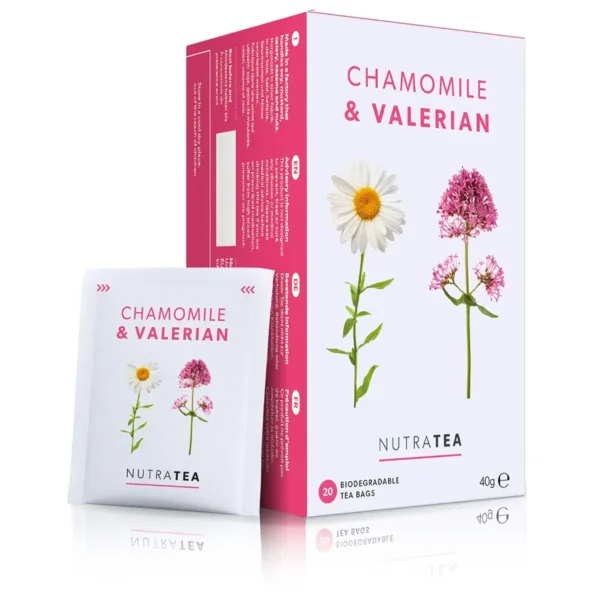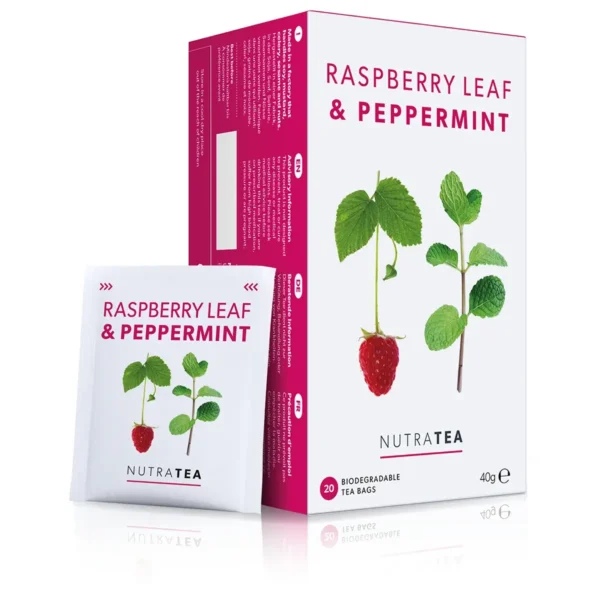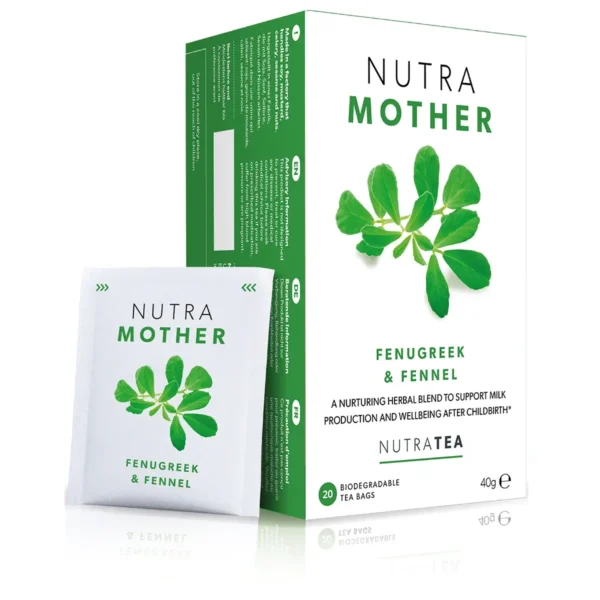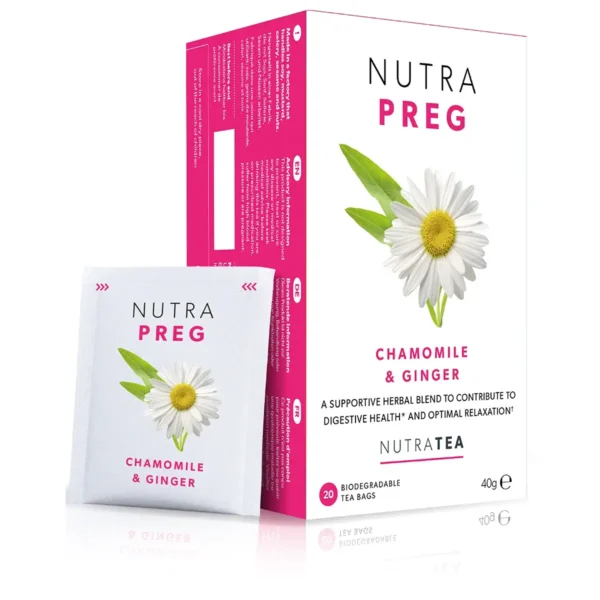SLEEP & RELAXATION IMMUNITY & ANTIOXIDANT VITALITY & INFLAMMATION ANTIOXIDANT & DIGESTION ENERGY & CLARITY WELLNESS & BLOOD SUGAR RESPIRATORY & IMMUNITY PREMIUM & FLAGSHIP BLENDS FLAGSHIP TEAS PREMIUM BLENDS PREMIUM & FLAGSHIP BLENDS PREMIUM & FLAGSHIP BLENDS PREMIUM BLENDS TEA MUGS, CADDY & BUDDY
What Herbal Teas Are Good During Pregnancy?

If you’re pregnant, you might be wondering whether it is safe to drink herbal teas. Find out which herbal teas are good to drink during pregnancy and which you should avoid in our latest guide.
—
When you’re growing a new life in your belly, you want to do everything you can to keep both yourself and your baby healthy and thriving. For many expectant parents, natural remedies like herbal teas are part of that healthy lifestyle.
Around 50% of pregnant women in Europe take some kind of herbal medicine while pregnant. Herbal teas are a popular choice – not only is making a cup of tea a delicious and comforting ritual to calm mind and body, but some herbs can also help with the symptoms of pregnancy and with preparing the body for birth.
However, there’s sadly been little research into which herbs are safe to use during pregnancy. This makes it harder for pregnant women to know which herbal teas they should reach for, and which should be avoided.
Although many traditional herbal remedies have been used by pregnant women for centuries, expectant parents are rightly cautious about what they introduce into their bodies over these 9 months.
If you’re pregnant and are unsure about whether you should drink herbal tea or not, you should always speak to your midwife. This is especially the case if you’ve experienced any complications during your pregnancy.
Fortunately, there are a few herbs that have had a little more attention from the scientific community and appear to be safe. Here are some of the herbal teas that may be beneficial during pregnancy.
1. Green Tea
Packed with antioxidants, green tea gets plenty of attention as a superfood. With numerous health benefits, it is no surprise that many pregnant women are keen to incorporate it into their diets.
Green tea helps to combat anxiety and supports your immune system. These are useful benefits at any time, but particularly during pregnancy. It is also rich in catechins – a group of compounds found in plants that support human health.
It’s worth noting that green tea does contain caffeine, although less than the average cup of coffee. The NHS recommend keeping your caffeine intake under 200mg per day while you’re pregnant, so this is worth keeping an eye on.
2. Ginger Tea
One of the best-researched teas for use during pregnancy is ginger. This spicy herb has several benefits when you’re pregnant, but it is most famous for its ability to combat nausea and ease morning sickness.
As a natural painkiller and anti-inflammatory, ginger is also a popular remedy for joint pain, something that can be a particular issue in the later months of pregnancy.
Research suggests that up to 1g of ginger per day is safe while you are pregnant. Although it depends a bit on the brand, this should equate to around 4 cups of ginger tea. Don’t forget to factor in ginger in other forms too.
3. Peppermint Tea
Like ginger, peppermint is a great herb for settling the stomach. Even the smell can help to calm nausea and prevent vomiting, which is wonderful news for anyone struggling with morning sickness.
Peppermint’s powers as a digestive aid aren’t limited to settling a choppy stomach, however. Peppermint tea is also a popular remedy for heartburn and indigestion, both of which can affect pregnant women.
Peppermint tea seems to be well-tolerated by most people during pregnancy and there are no reported harmful effects to mother or baby from drinking a cup or two per day.
However, some people prefer to avoid peppermint during the first trimester. This is because it can have an emmenagogue effect if taken in large quantities. Emmenagogues are substances that stimulate or increase menstrual flow.
4. Red Raspberry Leaf Tea
Another popular herbal tea during pregnancy is red raspberry leaf. It is particularly prized during the third trimester because it contains a compound called fragarine, which helps to tone and strengthen the muscles of the uterus.
This helps your body prepare for labour and birth. Drinking raspberry leaf tea during the third trimester may help to shorten labour and reduce the risk of interventions, such as the use of forceps during delivery.
Drinking raspberry leaf tea seems to be safe during pregnancy. Some people do find it has a mild laxative effect – since constipation is often a side effect of pregnancy, this might be beneficial!
You might also want to limit yourself to one cup per day during the early weeks because of raspberry leaf’s ability to stimulate uterine contractions. This tea is most effective when you drink it during the second and third trimesters.
5. Raspberry Leaf & Peppermint Flagship Blend
Our go-to pregnancy tea is our raspberry leaf & peppermint flagship blend. Our expert team created this tea specifically with pregnancy in mind.
With peppermint to soothe indigestion and nausea, plus raspberry leaf to tone and strengthen the uterus, this herbal tea blend is ideal for the third trimester. It also has a deliciously refreshing taste, making it perfect for after meals.
How Much Herbal Tea is Safe to Drink During Pregnancy?
How much herbal tea you drink while you are pregnant depends a little on which herbs your tea contains. As a general guideline, the NHS say that 1 to 2 cups a day is fine. Don’t forget to watch out for caffeine content if you drink green tea or another herbal blend that contains caffeine.
Some experts advise against drinking four cups of the same herbal tea every day, however. Instead, they recommend sticking to 2 cups of each herb, which should keep you well within safe limits.
What Herbal Teas Should You Avoid During Pregnancy?
Just because a herb isn’t on our safe list, doesn’t mean it will necessarily cause any issues during pregnancy. There simply hasn’t been much high-quality research in this area.
However, some herbs should be avoided during pregnancy. These include:
- Borage
- Pennyroyal
- Liquorice
- Sage
- Thyme
- Fenugreek
- Cinnamon
- Motherwort
- Blue cohosh
- Black cohosh
- Yarrow
- Nettle
You should also avoid chamomile (both Roman and German) in large amounts since it may reduce the blood flow to your baby if you drink a lot of it.
Herbs like sage, thyme, and cinnamon are generally fine in cooking since we use them in such small amounts. Herbal teas contain more concentrated levels of these ingredients.
This list isn’t comprehensive. If in doubt, check with your midwife before introducing a new herbal tea to your diet while you’re pregnant or stick to the suggestions above.




